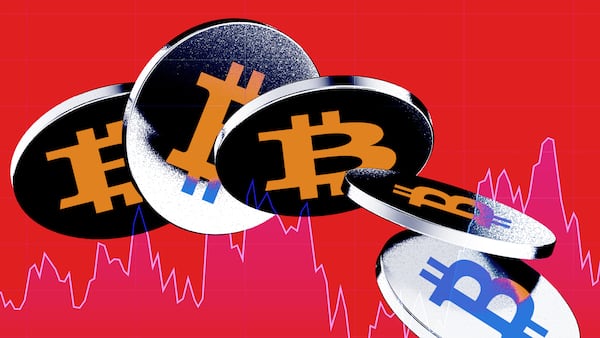- Bitcoin treasuries are firms that hold Bitcoin on their balance sheets.
- They’ve accumulated more than 1 million Bitcoin to date.
- But in October, the amount purchased slumped to its lowest level of any month this year.
The Bitcoin treasury boom is slowing down.
Public companies added just 14,400 Bitcoin worth about $1.4 billion to their balance sheet in October, the lowest monthly total of 2025 and a sharp, 63% drop from September’s 38,035 Bitcoin, according to data compiled by BitcoinTreasuries.net.
Private companies added even less — about 3.5 Bitcoin for the month.
The dramatic slowdown comes as the premium that made Bitcoin treasuries attractive to investors has collapsed.
Strategy’s mNAV — the ratio between its market capitalisation and the Bitcoin it holds — has fallen to 1.1x, from 1.8x in May. For the sector’s most prominent company, those aren’t auspicious numbers.
And Strategy isn’t alone in its trouble. MetaPlanet, the largest treasury in Asia, is down $30 million on its Bitcoin purchases, while France-based Sequans communications sold 970 Bitcoin to recoup some of the losses it suffered in its stock price.
Here are the four reasons behind the slowdown.
mNAV collapse
There’s a simple premise behind the Bitcoin treasury boom that preceded October’s crash.
If your stock trades at a premium to your Bitcoin holdings, you can issue shares, buy more Bitcoin, and say you created value for shareholders.
But that only works when the premium exists.
Throughout 2024 and early 2025, investors paid 2x, 3x, even 6x the value of a company’s Bitcoin just for stock market access.
Across the treasury trade, those premiums have all but vanished. Strategy’s mNAV fell to 1.1x today from 1.8x in May. BitMine, the largest Ethereum treasury, trades below its Ether holdings. Even treasuries that hold Solana, which once commanded 20x premiums, now hover near 1x.
When your stock trades on par with your Bitcoin, there’s no arbitrage. Issuing shares to buy more Bitcoin doesn’t create value — it just dilutes existing holders.
Too many copycats
The “me too” wave flooded the market this year.
More than 200 public companies now hold Bitcoin on their balance sheets, up from a handful in 2020. October alone saw 26 new firms become Bitcoin treasuries.
In July, renowned short seller Jim Chanos warned of “SPAC-like 2021 numbers in the Bitcoin treasury market right now.”
“There are reasonably large announcements every day now,” he said, “hundreds and hundreds of millions of dollars a night.”
Stock price collapse
Some companies are even imploding.
David Bailey’s Nakamoto Holdings soared nearly sevenfold to $35 per share after merging with healthcare firm KindlyMD in May, creating a “Bitcoin treasury for Bitcoin treasuries.” Shares now trade under $1.
Strategy is down 46% from its July high. Sequans Communications, a Paris-based chipmaker, had to revert to a convoluted accounting scheme to avoid delisting from the New York Stock Exchange after shares plummeted to penny stock value.
What complicates things even further is that when your stock is cratering, raising capital becomes impossible. And without fresh money, you can’t buy more Bitcoin.
Bitcoin’s price
Finally, there’s the price for one Bitcoin.
At over $100,000 per coin, buying Bitcoin in size requires massive capital raises. Companies that could deploy $100 million at lower prices now need exponentially more cash to make meaningful purchases.
Some firms are now even selling Bitcoin to shore up their stocks.
For instance, Sequans Communications dumped 970 Bitcoin to redeem convertible debt. ETHZilla sold $40 million in Ether to prop up its share price. And Metaplanet announced plans to borrow up to $500 million against its Bitcoin holdings to buy back stock.
The companies built to accumulate crypto are now selling it.
Pedro Solimano is DL News’ Buenos Aires-based markets correspondent. Got a tip? Email him at psolimano@dlnews.com.








